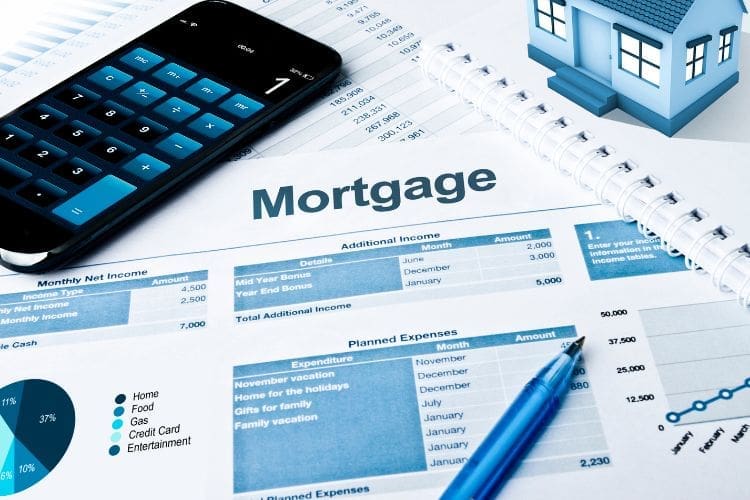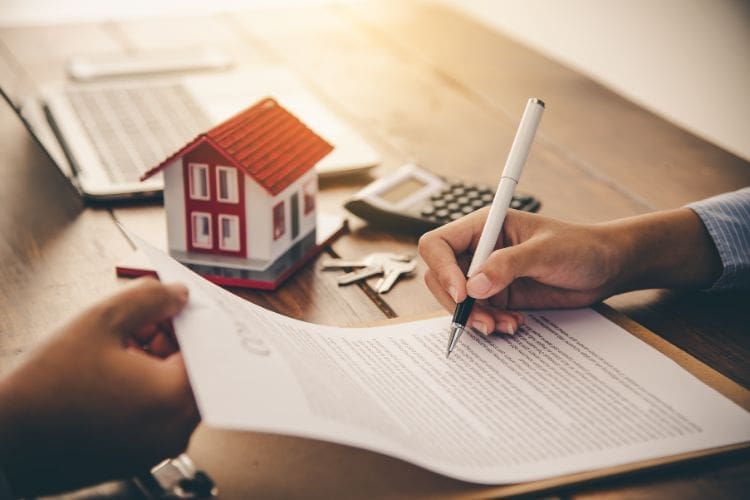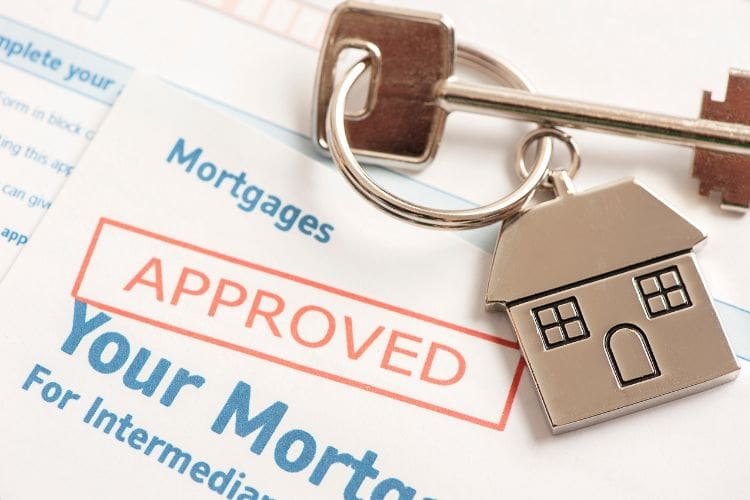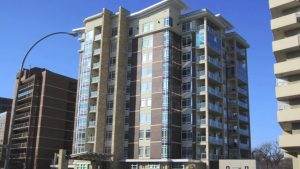Essential Questions to Ask Your Mortgage Lender: A Guide
When looking for a mortgage lender, it is important to ask the right questions to ensure you are making the best financial decisions for your home loan. This guide provides a comprehensive list of essential questions to ask your mortgage lender in order to navigate the mortgage process effectively. These questions cover important topics such as loan options, down payment, interest rates, fees, and the application process. By asking these questions, you can gain a better understanding of the mortgage terms and conditions, and choose the right lender for your needs.
Key Takeaways
- Asking the right questions to your mortgage lender is crucial for making informed decisions and finding the best loan options.
- Key questions to ask include those related to loan options, down payment, interest rates, fees, and the application process.
- Understanding the type of mortgage that is best suited for your situation is important.
- Inquire about the down payment required and explore any available down payment assistance programs.
- Be sure to ask about the interest rate and whether it is fixed or adjustable.
Which Type of Mortgage is Best for Me?
When it comes to choosing a mortgage, it's important to understand the different types available and determine which one is best suited for your specific needs and financial situation. Here are some key mortgage types to consider:
- Conventional Loan: This is a mortgage that is not insured or guaranteed by a government agency. It typically requires a higher credit score and down payment compared to other loan options.
- FHA Loan: An FHA loan is insured by the Federal Housing Administration. It is popular among first-time homebuyers because it requires a lower down payment and has more flexible credit requirements.
- VA Loan: VA loans are available to veterans, active-duty service members, and surviving spouses. These loans are guaranteed by the Department of Veterans Affairs and often have more favorable terms and lower interest rates.
- Government-Backed Loan: These loans, such as USDA and HUD loans, are backed by government agencies and offer benefits like low down payment requirements and flexible credit guidelines.
To determine the best type of mortgage for you, consider factors such as your credit score, down payment amount, and eligibility for specific loan programs. Consulting with a mortgage lender can also provide valuable guidance and help you make an informed decision.

Questions to ask your mortgage lender
What to Consider When Choosing a Type of Mortgage
When evaluating the different types of mortgages, it's important to consider the following factors:
- Interest Rates: Compare the interest rates for different loan types and determine which one offers the most favorable terms. Keep in mind that interest rates can impact your monthly payments and overall cost of the loan.
- Down Payment: Assess your ability to make a down payment and determine which loan type aligns with your financial resources. Some loans require a higher down payment, while others offer low or no down payment options.
- Credit Requirements: Understand the credit score and history requirements for each loan type. If you have a lower credit score, certain loan programs may be more suitable for your situation.
- Loan Limits: Different loan programs have varying loan limits, which determine the maximum amount you can borrow. Make sure the loan type you choose aligns with your desired loan amount.
- Loan Terms: Evaluate the loan terms, including the length of the loan and any adjustable rate features. Choose a loan with terms that fit your long-term financial goals and budget.
By considering these factors and consulting with a mortgage lender, you can determine the best type of mortgage for your specific needs and move forward with confidence in your home financing journey.
How much down payment will I need?
One of the key questions to ask your mortgage lender is how much down payment you will need to purchase a home. While a 20% down payment is often considered ideal, there are options available for lower down payments, including 3% down or even no down payment. It's important to understand the minimum down payment requirement for the type of loan you are considering.
If you have a limited amount of funds for a down payment, you can also inquire about down payment assistance programs. These programs, offered by local, state, or national organizations, can help eligible homebuyers with their down payment. Your lender should be able to provide you with information on any available programs and guide you through the application process.
To get a clearer picture of the down payment requirements and potential assistance options, consider the following table:
| Down Payment | Loan Type | Assistance Programs |
|---|---|---|
| 20% or more | Conventional Loan | No assistance programs available |
| 3% to 10% | Conventional Loan | Inquire about state or local down payment assistance programs |
| 3.5% | FHA Loan | Inquire about FHA-approved down payment assistance programs |
| No down payment | VA Loan | Veterans and active-duty military members may be eligible for VA loan programs |
Note: The table above is for illustrative purposes only and is not an exhaustive list of all loan types or assistance programs available. Contact your lender for specific information regarding your loan options and eligibility for down payment assistance programs.

What is my interest rate?
Understanding the interest rate on your mortgage is crucial for managing your monthly payments. When asking your lender this question, you can gain valuable insights into the different types of interest rates available. There are typically two main types: fixed-rate mortgages and adjustable-rate mortgages.
A fixed-rate mortgage means that the interest rate remains the same throughout the life of the loan. This provides stability and predictability in your monthly payments, allowing you to budget more effectively. On the other hand, an adjustable-rate mortgage (ARM) has an interest rate that can fluctuate over time. These types of loans typically have a fixed rate for an initial period, after which the rate adjusts annually based on market conditions.
When discussing adjustable-rate mortgages with your lender, inquire about the maximum annual adjustment and the frequency of interest rate adjustments. This will help you understand how much your monthly payment could potentially increase or decrease in the future. It's essential to evaluate whether an ARM aligns with your financial goals and risk tolerance.
Remember to ask for specific details about the potential adjustment caps and how they might affect your loan before making a decision.
By asking your lender about your interest rate options, you can make an informed decision that aligns with your financial plans and goals.

Do I qualify for any down payment assistance programs?
If you are interested in receiving financial assistance for your down payment, it is important to ask your lender whether you qualify for any down payment assistance programs. These programs are designed to help homebuyers with limited funds to afford their down payment. Your lender should have knowledge of these programs and be able to guide you through the process of applying and qualifying for them.
There are various types of down payment assistance programs available, including local, state, and national programs. Local programs are typically offered by city or county governments and provide assistance to homebuyers within specific geographic areas. State programs are administered at the state level and may offer a range of down payment assistance options. National programs, such as those offered by the Federal Housing Administration (FHA) and the Department of Veterans Affairs (VA), provide down payment assistance to specific groups of homebuyers, such as first-time buyers and veterans.
When asking your lender about down payment assistance programs, it is important to provide information about your income, household size, and any other factors that may affect your eligibility. Your lender will be able to assess your situation and determine which programs you may qualify for. They can also help you navigate the application process and guide you through any additional requirements or documentation that may be needed.
| Type of Down Payment Assistance Program | Description |
|---|---|
| Local Down Payment Assistance Programs | These programs are offered by city or county governments and provide assistance to homebuyers within specific geographic areas. |
| State Down Payment Assistance Programs | These programs are administered at the state level and may offer a range of down payment assistance options. |
| National Down Payment Assistance Programs | These programs, such as those offered by the FHA and VA, provide down payment assistance to specific groups of homebuyers. |
By exploring down payment assistance programs, you can potentially access additional funds that can help make homeownership more affordable and accessible. It's important to inquire about these programs early in the mortgage process to ensure you have all the information needed to make an informed decision about your home purchase.
What is the annual percentage rate?
When securing a mortgage, it's essential to understand the annual percentage rate (APR) and its implications on the total cost of your loan. The APR is a combination of the interest rate and other loan fees, giving you a more accurate picture of what you'll be paying over the life of the loan. By comparing APRs from different lenders, you can engage in effective comparison shopping and make an informed decision.
One factor to consider when evaluating the APR is whether it includes discount points. Discount points are upfront fees paid to reduce the interest rate on the loan. A zero-discount-point APR takes into account the absence of these points, providing you with a clearer view of the loan costs. By understanding the APR and discount points, you can assess the true affordability of your mortgage and determine which loan option aligns with your financial goals.

Loan Fees Comparison
| Loan Fees | Interest Rate | APR |
|---|---|---|
| Loan Option 1 | 3.5% | 3.8% |
| Loan Option 2 | 4% | 4.2% |
| Loan Option 3 | 3.75% | 4% |
In the table above, you can see a comparison of loan fees and APRs for three different loan options. This comparison allows you to identify the loan with the most favorable terms and lowest overall cost. By carefully considering the APR and loan fees, you can make an informed decision and choose a mortgage that suits your financial needs.
Remember that the APR is an essential tool for comparing different loan offers and understanding the impact of loan fees on the total cost of your mortgage. By evaluating APRs and conducting thorough research, you can confidently navigate the mortgage process and secure a loan that aligns with your long-term financial goals.
Will I have to pay mortgage insurance?
When obtaining a mortgage, one crucial factor to consider is whether you will need to pay mortgage insurance. Mortgage insurance is typically required when the down payment is less than 20% of the home's purchase price. It serves as a form of financial protection for lenders in case the borrower defaults on the loan. There are different types of mortgage insurance, including private mortgage insurance (PMI) and lender-paid mortgage insurance (LPMI).
Mortgage insurance premiums can vary based on factors such as the loan amount, credit score, and down payment percentage. It is important to understand the implications of mortgage insurance on your overall mortgage payment. This can help you evaluate the affordability of the loan and explore alternative loan options that may not require mortgage insurance.
Inquire with your mortgage lender about the specifics of mortgage insurance, including the cost, whether it is an upfront or ongoing charge, and if there are any alternatives available. By asking these questions, you can make an informed decision about your loan and ensure that you are fully aware of all costs associated with your mortgage.
Table: Mortgage Insurance Comparison
| Type of Mortgage Insurance | Upfront Cost | Ongoing Cost | Loan Options |
|---|---|---|---|
| Private Mortgage Insurance (PMI) | Varies | Monthly premiums | Conventional loans with less than 20% down payment |
| Lender-Paid Mortgage Insurance (LPMI) | No upfront cost | Higher interest rate | Conventional loans with less than 20% down payment |
| No Mortgage Insurance | N/A | N/A | Conventional loans with 20% or more down payment, VA loans, USDA loans |
By understanding the details of mortgage insurance, you can make an informed decision about your loan and choose the option that best suits your financial goals. Remember to carefully review all the terms and conditions of your mortgage and consult with your lender for any further clarifications.

What will my monthly payment be?
Knowing your monthly mortgage payment is crucial for budgeting and managing your finances. It's important to understand the total amount you will be paying each month, including principal, interest, and any additional costs such as mortgage insurance or property taxes. By asking your lender this question, you can get a clear picture of your monthly payment and plan your budget accordingly.
Additionally, you can inquire about any prepayment penalties if you plan to pay off your loan early. Some lenders may charge a fee if you choose to pay off your loan before the agreed-upon term. Understanding these penalties will help you make an informed decision and evaluate the flexibility of your loan.
When considering your monthly payment, it's important to take into account your monthly budget and financial goals. Assessing your income, expenses, and other financial obligations will help you determine how much you can comfortably afford to pay each month towards your mortgage. Your lender can provide guidance and help you find a loan that aligns with your financial situation.
| Loan Term | Interest Rate | Loan Amount | Monthly Payment |
|---|---|---|---|
| 30 years | 4.5% | $200,000 | $1,013.37 |
| 15 years | 3.8% | $200,000 | $1,457.08 |
| 10 years | 3.5% | $200,000 | $1,976.97 |
Table: Example of monthly payments for different loan terms and interest rates based on a $200,000 loan amount.
What other costs will I pay at closing?
When purchasing a home, it's important to consider all the costs involved in the closing process. In addition to your down payment and loan fees, there are several other expenses you may incur. By understanding these costs upfront, you can plan your finances effectively and avoid any surprises.
Below is a breakdown of the potential expenses you may encounter at closing:
- Appraisal fees: These fees cover the cost of assessing the value of the property you are purchasing. They are typically paid out of pocket and can vary depending on the size and location of the home.
- Title search fees: Prior to closing, a title search will be conducted to ensure there are no liens or ownership disputes on the property. You may be responsible for covering the cost of this search.
- Property taxes: Depending on the timing of your closing, you may need to reimburse the seller for any property taxes they have prepaid. Your lender may also require you to establish an escrow account for future property tax payments.
- Closing disclosure: This document outlines all the details of your loan and the associated costs. Your lender is required to provide you with a closing disclosure at least three days before your closing date.
It's important to carefully review your closing disclosure and ask your lender any questions you may have. This will ensure you have a clear understanding of all the costs associated with your home purchase.
| Expense | Estimated Cost |
|---|---|
| Appraisal fees | $300 – $500 |
| Title search fees | $200 – $400 |
| Property taxes | Varies based on location and timing |
| Closing disclosure | N/A |
It's important to note that closing costs can vary depending on factors such as the location of the property, the size of the loan, and the specific terms of your mortgage. It's recommended to work closely with your lender and review the closing costs estimate they provide to ensure you are prepared for all expenses.

How – and how often – will I be updated on the loan’s progress?
Communication is an essential aspect of the mortgage loan process. It is important to establish clear expectations with your lender regarding updates on the progress of your loan. By asking your lender how and how often you will be updated, you can ensure that you are kept informed throughout the process.
Some lenders may provide updates through email, sending regular notifications about the status of your loan application, any required documentation, and important milestones in the approval process. This method allows for convenient access to information and the ability to review updates at your own pace.
Others may prefer phone updates, with a loan officer or dedicated representative contacting you directly to provide updates on your loan's progress. This method offers a more personal touch and allows you to ask any questions you may have.
Additionally, some lenders may offer an online portal where you can access real-time updates on your loan's progress. This portal may provide a dashboard with information on the status of your application, any pending tasks, and important dates or deadlines. It can be a convenient way to stay informed and track the progress of your loan from anywhere at any time.
| Method | Advantages |
|---|---|
| Email updates | Convenient access to information Ability to review updates at your own pace |
| Phone updates | Personal touch Opportunity to ask questions |
| Online portal | Real-time updates Convenient access from anywhere |
When discussing communication with your lender, it is important to clarify the frequency of updates. Will updates be provided weekly, bi-weekly, or on an as-needed basis? Setting clear expectations will help ensure that you are receiving the information you need to stay informed and make timely decisions.
Remember, effective communication is key to a smooth mortgage loan process. By asking your lender about how and how often you will be updated, you can establish a strong foundation for communication and ensure that you are up to date on the progress of your loan.
Conclusion
Asking the right questions to your mortgage lender is essential for making informed decisions and finding the best loan options for your needs. By understanding key aspects such as loan types, down payment requirements, interest rates, and closing costs, you can navigate the mortgage process with confidence.
Remember to inquire about down payment assistance programs and mortgage insurance options to explore all avenues for financial support. Additionally, make sure to clarify how your lender will communicate with you throughout the loan process, ensuring you stay updated and informed every step of the way.
By asking these essential questions, you can evaluate the responses from different lenders and choose the one that best aligns with your financial goals and service expectations. Remember, every lender is different, so taking the time to ask these questions will help you find the right fit for your mortgage needs.
Key Questions To Ask Your Mortgage Lender
What type of mortgage is best for me?
The best type of mortgage for you depends on your individual situation. Different types of mortgages have different requirements, interest rates, and repayment terms.
Some common types of mortgages include conventional loans, FHA loans, VA loans, and government-backed loans. It is important to understand the pros and cons of each type of mortgage to make an informed decision that aligns with your financial goals.
How much down payment will I need to buy a house?
The down payment amount required for a home purchase varies. While a 20% down payment is often considered ideal, there are options available for lower down payments, such as 3% down or even no down payment. Additionally, you can inquire about down payment assistance programs that may be available to you through local, state, or national organizations.
What is the interest rate of my mortgage?
Understanding your interest rate is essential for managing your monthly mortgage payments. Different types of mortgages have different interest rate structures, such as fixed-rate and adjustable-rate mortgages.
If you have an adjustable-rate mortgage, you can inquire about the frequency of interest rate adjustments and the maximum annual adjustment to gauge the stability and affordability of your loan over time.
Do I qualify for any down-payment assistance programs?
It is important to ask your lender whether you qualify for any down payment assistance programs. These programs are designed to help homebuyers with limited funds to afford their down payment. Your lender should have knowledge of these programs and be able to guide you through the process of applying and qualifying for them.
What is the actual, annual percentage rate of my mortgage?
The annual percentage rate (APR) is an important metric for comparing different loan offers. It includes the interest rate and other loan fees, giving you a comprehensive understanding of the total cost of the loan. You can inquire about the inclusion of discount points in the APR and evaluate the overall loan costs to make an informed decision.
Will I have to pay mortgage insurance?
Mortgage insurance is often required when the down payment is less than 20% of the home's purchase price. When asking your lender about mortgage insurance, you can find out the details of the insurance, including the cost, whether it is an upfront or ongoing charge, and if there are any alternatives or loan options that do not require mortgage insurance.
How much will my monthly mortgage payments be?
Knowing your monthly mortgage payment is crucial for budgeting and managing your finances. By asking your lender this question, you can get a clear understanding of the amount you will need to pay each month. Additionally, you can inquire about any prepayment penalties if you plan to pay off your loan early.
What are my closing costs when buying a home?
Closing costs are an important consideration when purchasing a home. By asking your lender about the other costs you will pay at closing, you can get a comprehensive understanding of all the fees involved in the transaction. These costs may include appraisal, title search, property taxes, and other third-party fees.
When and how often will I be updated on the loan process?
Communication is key throughout the mortgage loan process. By asking your lender about how and how often you will be updated on the loan's progress, you can establish your service expectations upfront. Inquire about the methods of communication, such as email, phone, or an online portal, and ensure that the lender is responsive and proactive in providing updates.
By asking the right questions to your mortgage lender, you can make informed decisions and find the best loan options for your needs. This comprehensive guide provides a list of essential questions to ask your mortgage lender, covering important topics such as loan options, down payment, interest rates, fees, and the application process. By asking these questions, you can navigate the mortgage process with confidence and choose the right lender for your home loan. Remember that every lender is different, so it is important to ask these questions and evaluate the responses to find the lender that best suits your needs.
 About the Publisher
About the Publisher
Bo Kauffmann is a residential real estate agent with over 18 yrs experience in helping buyers and sellers achieve their goals. Inducted into the REMAX Hall of Fame in 2010 and receiving the REMAX Lifetime Achievement Award in 2019, Bo has sold over 500 houses and condos in the Greater Winnipeg market. He is an accredited buyer representative (A.B.R.) and a Luxury Home Marketing Specialist.
Bo provides exceptional service to First-Time Home-Buyers, Seniors looking to downsize and Home Sellers of all ages.
He can be reached easily By E-Mail or call/text him Call/Text Here
Never miss an episode of our real estate podcast. Install our FREE Podcast App available on iOS and Android. For your Apple Devices, click here to install our iOS App. For your Android Devices, click here to install our Android App. Check my videos on Youtube






